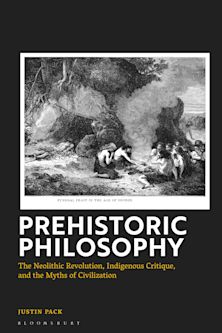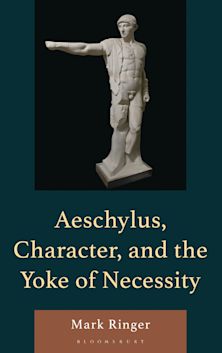- Home
- ACADEMIC
- Philosophy
- Ancient Philosophy
- Who Speaks for Plato?
Who Speaks for Plato?
Studies in Platonic Anonymity
Gerald A. Press (Anthology Editor) , Hayden W. Ausland (Contributor) , Eugenio Benitez (Contributor) , Ruby Blondell (Contributor) , Lloyd P. Gerson (Contributor) , Francisco J. Gonzalez (Contributor) , J J. Mulhern (Contributor) , Debra Nails (Contributor) , Erik Ostenfeld (Contributor) , Gerald A. Press (Contributor) , Gary Alan Scott (Contributor) , P Christopher Smith (Contributor) , Harold Tarrant (Contributor) , Holger Thesleff (Contributor) , Joanne Waugh (Contributor) , William A. Welton (Contributor) , Elinor J. M. West (Contributor)
Who Speaks for Plato?
Studies in Platonic Anonymity
Gerald A. Press (Anthology Editor) , Hayden W. Ausland (Contributor) , Eugenio Benitez (Contributor) , Ruby Blondell (Contributor) , Lloyd P. Gerson (Contributor) , Francisco J. Gonzalez (Contributor) , J J. Mulhern (Contributor) , Debra Nails (Contributor) , Erik Ostenfeld (Contributor) , Gerald A. Press (Contributor) , Gary Alan Scott (Contributor) , P Christopher Smith (Contributor) , Harold Tarrant (Contributor) , Holger Thesleff (Contributor) , Joanne Waugh (Contributor) , William A. Welton (Contributor) , Elinor J. M. West (Contributor)
This product is usually dispatched within 3 days
- Delivery and returns info
-
Free CA delivery on orders $40 or over
You must sign in to add this item to your wishlist. Please sign in or create an account
Description
In this international and interdisciplinary collection of critical essays, distinguished contributors examine a crucial premise of traditional readings of Plato's dialogues: that Plato's own doctrines and arguments can be read off the statements made in the dialogues by Socrates and other leading characters. The authors argue in general and with reference to specific dialogues, that no character should be taken to be Plato's mouthpiece. This is essential reading for students and scholars of Plato.
Table of Contents
Part 2 Theory and History
Chapter 3 Mouthpiece Schmouthpiece
Chapter 4 The Logic of Attributing Characters' Views to Plato
Chapter 5 Socrates and the Character of Platonic Dialogue
Chapter 6 The Philosopher Conducting Dialectic
Chapter 7 Where Plato Speaks: Reflections on an Ancient Debatex
Part 8 Research on Specific Dialogues
Chapter 9 Cowardice, Moral Philosophy in and Saying What You Think
Chapter 10 Why Doesn't Plato Speak?
Chapter 11 Not Doctrine but 'Placing in Question': The Thrasymachus ( as a Placing-In-Question"Rep.I) as anErotesis of Commercialization
Chapter 12 Letting Plato Speak for Himself: Character and Method in the Republic
Chapter 13 Eros as Messenger in Diotima's Teaching
Chapter 14 The Eleatic Stranger: His Master's Voice?
Chapter 15 Who Speaks for Whom in the Timaeus-Critias?
Part 16 Criticisms and Alternatives
Chapter 17 Plato Absconditus
Chapter 18 Who Speaks for Plato? Everyone!
Chapter 19 Interpreting the Platonic Dialogues: What Can One Say?
Product details
| Published | May 30 2000 |
|---|---|
| Format | Paperback |
| Edition | 1st |
| Extent | 256 |
| ISBN | 9780847692194 |
| Imprint | Rowman & Littlefield Publishers |
| Dimensions | 228 x 149 mm |
| Publisher | Bloomsbury Publishing |
About the contributors
Reviews
-
Among recent collections of essays on Plato this volume stands out for overall excellence, and for the impressive range of arguments it contains. This book does not assume specialized knowledge and is essential reading for anyone interested in ancient philosophy or literary crtiticism.
Religious Studies Review



































